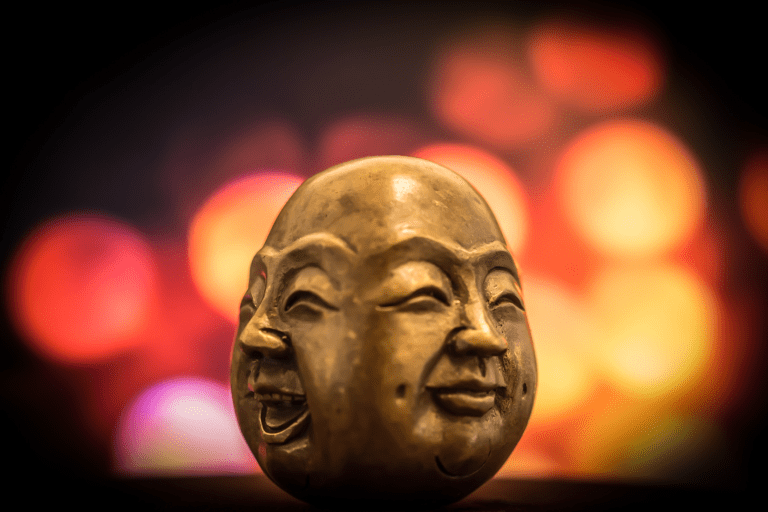When giving a lecture before an audience of ethnobotany/entheogen enthusiasts, Terence Mckenna offered the following advice to those who dared to venture along the psychedelic path: “refuse to be paralyzed by astonishment.”
What he meant was this: When you’re on a journey of any kind, there are always cool things to look at along the way. And if you’re not careful, you’ll become so enchanted by bright and shiny things that you’ll forget about why you were on that journey in the first place. So stay focused on your original intent and don’t allow your mission to be halted by the blinding lights of novelty.
McKenna’s advice was specifically about the bizarre and beautiful visual images that people often report seeing while on DMT. For McKenna, the purpose of experimenting with DMT was self-knowledge, not recreational adventure or mindless escape. So his advice was about not getting spellbound by exotic elements encountered along the spiritual path.
This advice applies to any process involving the pursuit of a goal. Anyone who has ever fallen prey to the temptation of click-bait knows how easy it can be to get distracted by cheap thrills. You get online with the goal of getting some work done and before you realize what’s happening, you’ve already wasted thirty minutes chasing after sensational news headlines. That’s what it means to be paralyzed by astonishment.
Now I’d like to call your attention to a different sense of being paralyzed by astonishment. Instead of merely saying “don’t be distracted by bright and shiny things,” I add “and be extra careful in situations where you happen to be the bright and shiny thing.”
There are two ways you can be blinded by novelty. The first sense, and this is the sense McKenna warns against, is to become so fixated with a new object/experience that you lose your way. In this sense, the source of novelty is external. You are the observer and the novelty is the observed. The second sense is to become blindsided by the adulation that comes your way when other people are fascinated by your brilliance. In this sense, the source of novelty is internal. Another person is the observer and you (ie. your gifts, talents, insights, etc.) are the novelty that is being observed.
Most people will never take a trip to psychedelic space, but nearly all of us will know what it’s like to temporarily occupy the space of being flattered by another person. And this is a far more dangerous and deceptive space to occupy. When you get intoxicated by praise or the pursuit thereof, It leads to a lifestyle of trying to replicate the behaviors that led to the praise instead of seeking new opportunities for improvement.
There’s an old saying that goes as follows: “If you meet Buddha on the path to enlightenment, kill him.” The idea here is that you should never allow your reverence for anything or anyone to delay your pursuit of self-realization. That’s relatively easy advice to follow until you wake up one day and realize that your commitment to personal growth has transformed you into a Buddha in someone else’s eyes. In cases such as these, following the adage becomes twice as important. You not only have to kill your own Buddha’s, but you also have to kill your need to be somebody else’s Buddha.
Once you get addicted to being adored, you’re paralyzed by astonishment.




